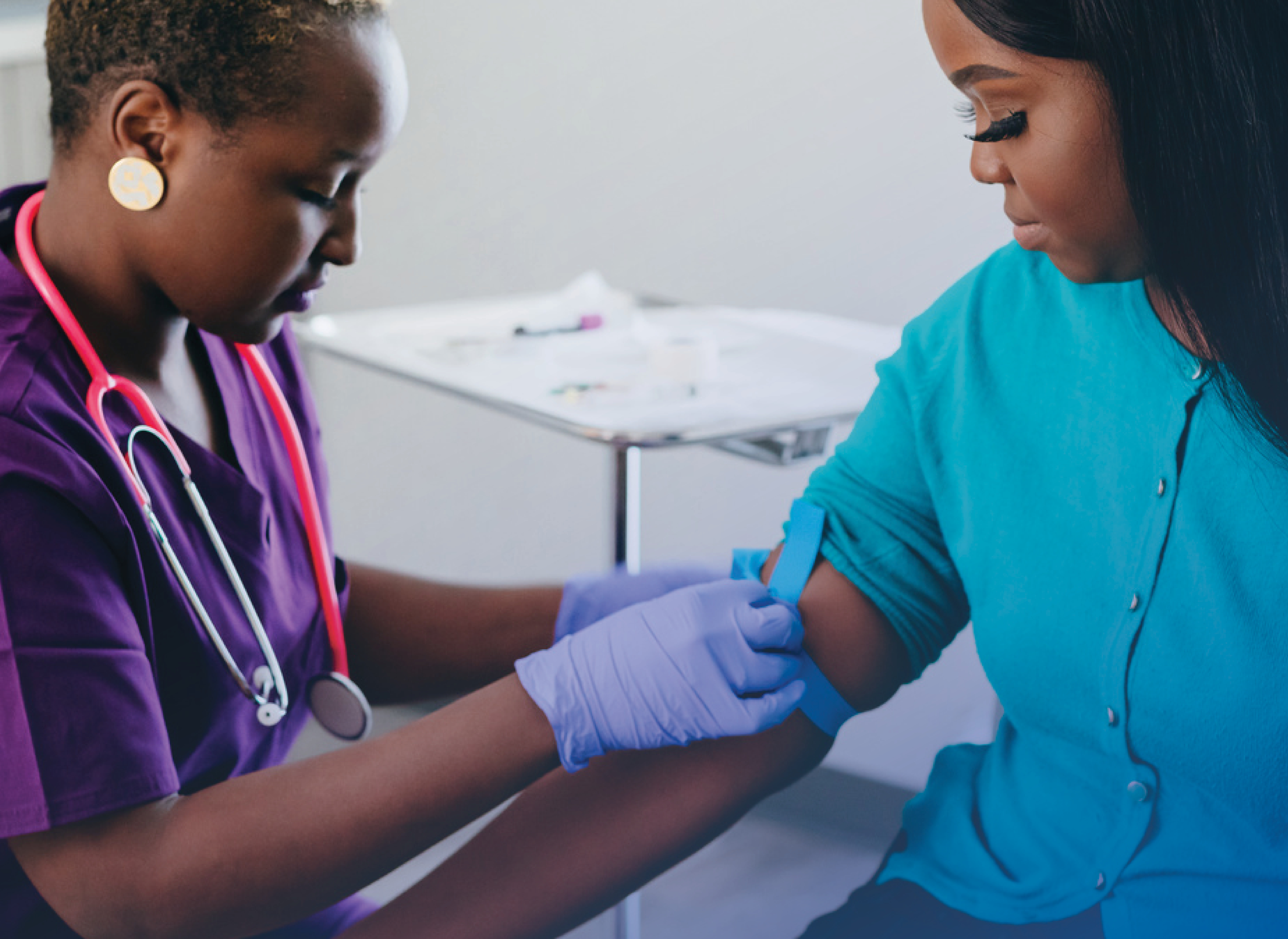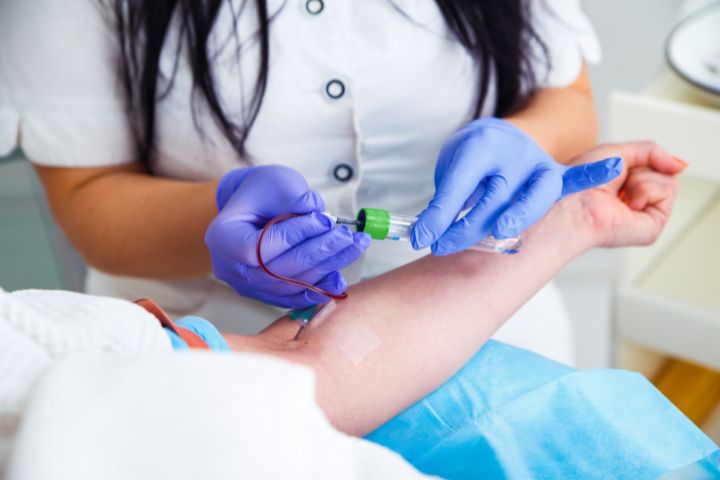Why a Phlebotomy Training Course Sets the Stage for a Promising Healthcare Career
Why a Phlebotomy Training Course Sets the Stage for a Promising Healthcare Career
Blog Article
The Course to Certification: Comprehending the Phlebotomy Educating Training Course Journey and Its Relevance
As you think about the path to qualification in phlebotomy, it is essential to comprehend the role you'll play in health care. Your training will certainly cover important abilities, from blood collection methods to patient communication. Each element of the program prepares you for the challenges in advance. What precisely does the journey involve, and why is certification so vital for your future job? Allow's discover these questions further.

The Role of Phlebotomists in Health Care
Phlebotomists play a vital duty in the health care system, functioning as the important link between people and crucial diagnostic screening. You'll perform blood attracts, guaranteeing examples are accumulated accurately and securely. Your knowledge assists in diagnosing clinical conditions, keeping track of health, and directing therapy choices.
In your day-to-day communications, you'll need to establish trust fund with clients, making them feel comfy throughout what might be a stressful experience. You are accountable for labeling and managing samples very carefully to stop contamination or mistakes, which can impact test results.
Beyond this, you'll frequently work along with doctors and registered nurses, connecting critical info regarding people' problems. By grasping your skills, you contribute meaningfully to person treatment, making you an important component of the medical group.
Summary of Phlebotomy Training Programs
When checking out phlebotomy training programs, you'll discover different kinds created to fit various timetables and learning styles. Each program assists you develop essential skills like blood collection and patient communication. Understanding these options is key to choosing the right path for your career.
Kinds of Training Programs
Numerous types of training programs are offered for those looking to come to be proficient in phlebotomy. In addition, some healthcare facilities and facilities supply on-the-job training programs, supplying practical experience while you find out. Whatever path you select, each program intends to furnish you with the needed abilities for an effective phlebotomy profession.

Key Skills Developed
Mastering phlebotomy requires a set of key skills that are developed through comprehensive training programs. You'll discover technological abilities like appropriate blood vessel selection, needle insertion, and blood collection strategies. These hands-on techniques guarantee you can perform treatments securely and successfully. Additionally, communication skills are essential; you'll require to connect with patients, describe treatments, and placed them secure. Understanding anatomy and physiology is essential, also, as it aids you locate veins and comprehend the body's action to blood attracts. Finally, you'll gain expertise of security methods and infection control, guaranteeing you keep a clean and sterile environment. Each of these skills is essential for your success as a licensed phlebotomist, making you a useful asset in any kind of medical care setting.
Secret Elements of a Phlebotomy Training Course
In a phlebotomy program, you'll focus on essential subjects that prepared for your future job. You'll take part in hands-on training that allows you to apply what you have actually learned in real-world setups. Both the core educational program and useful experience are important for your success as a phlebotomist.
Core Educational Program Summary
While going after a phlebotomy training program, you'll encounter a curriculum designed to equip you with essential abilities and knowledge. Phlebotomy school. This educational program usually includes makeup and physiology, concentrating on the circulatory system and comprehending blood components. You'll likewise discover different kinds of blood collection approaches, consisting of venipuncture and capillary puncture methods
Furthermore, infection control and safety and security methods are vital components, ensuring you know exactly how to keep a sterile environment. You'll study patient interaction, stressing communication and empathy, which are important for reducing person anxiousness.
Hands-On Training Experience
Getting hands-on experience is a vital part of your phlebotomy training program. This practical training permits you to use what you have actually found out in a real-world setup, improving your abilities and self-confidence. You'll practice venipuncture techniques, find out just how to manage different sorts of specimens, and get accustomed to the equipment utilized in the area. Under the advice of seasoned instructors, you'll improve your skills, guaranteeing you're gotten ready for any type of scenario you may face.
In addition, you'll get the opportunity to interact with clients, which is necessary for establishing your communication abilities. This mix of technological proficiency and interpersonal skills is important for your success as a qualified phlebotomist. Inevitably, hands-on training is where theory fulfills technique, solidifying your understanding and preparedness for certification.
Accreditation and Licensing Demands
Prior to you can begin your profession in phlebotomy, it is important to recognize the certification and licensing needs that differ by state. The majority of states need phlebotomists to hold a certification from an identified company, such as the National Phlebotomy Organization or the American Culture for Professional Pathology. These accreditations usually entail passing a test that examines your knowledge and skills in the area.
Along with certification, have a peek at this site some states have specific licensing requirements. You may need to complete a specific number of hours in medical method, submit proof of training, or undergo a background check. It is very important to research your state's guidelines to see to it you satisfy all required requirements.
Remaining educated concerning these requirements not only assists you protect a setting however additionally enhances your trustworthiness as a specialist. By meeting these demands, you'll be well on your means to an effective occupation in phlebotomy.
Hands-On Training and Practical Experience
Hands-on training and sensible experience are necessary parts of your phlebotomy education and learning, as they enable you to use academic expertise in real-world circumstances. During your training, you'll take part in supervised venipuncture, find out correct strategies, and become knowledgeable about various blood collection equipment. This straight involvement is critical for developing your self-confidence and sharpening your skills.
You'll work very closely with knowledgeable specialists who can guide you via the nuances of patient interaction and example handling. Each practice not only reinforces your understanding but additionally prepares you for the fast-paced atmosphere of health care settings.
Additionally, numerous programs include clinical turnings, allowing you to experience diverse settings, from medical facilities to outpatient centers. This exposure aids you adjust to various challenges and patient demands, guaranteeing you're well-prepared for your future role. Embrace these possibilities, as they're vital to ending up being a qualified and caring phlebotomist.
Difficulties Faced During Training
While getting hands-on experience is essential, it is very important to acknowledge the challenges that can occur throughout your phlebotomy training. You might encounter anxiety when executing procedures on genuine clients, especially if you're brand-new to the environment. The pressure to obtain every little thing right can be overwhelming. Additionally, understanding the skills required for blood draws takes practice; you may deal with technique originally.
Time monitoring can likewise be an obstacle, as balancing theory, sensible sessions, and personal commitments can really feel challenging. You might face differing finding out rates amongst your peers, leading to sensations of self-doubt if you think you're falling back. Adapting to the different characters of trainers can be tough, as each might have a distinct training design.
Recognizing these challenges early can prepare you for success and aid you develop resilience throughout your training journey.
Career Opportunities After Accreditation

As you obtain experience, you may even take into consideration focusing on locations like pediatric or senior citizen phlebotomy, dealing with particular individual requirements. Some phlebotomists pick to progress their careers by coming to be laboratory professionals or pursuing more education in health care areas.
In addition, your accreditation can lead to duties in training or managing new phlebotomists, allowing you to share your expertise. With the healthcare sector continually expanding, your abilities will constantly be in demand, leading the way for a stable and meeting profession. Welcome the possibilities waiting on you!
Regularly Asked Inquiries
What Is the Normal Period of a Phlebotomy Educating Course?
Phlebotomy training courses generally last around 4 to 8 weeks. You'll participate in hands-on practice, class direction, and on-line understanding. Completing this training prepares you for accreditation and a fulfilling occupation in healthcare.
Are Online Phlebotomy Courses Available?
Yes, online phlebotomy training courses are readily available. They provide versatility and ease, enabling you to examine at your very own speed. Simply company website verify the program is certified to fulfill certification needs and obtain valuable abilities for your profession.
Just How Much Does Phlebotomy Training Usually Expense?
Phlebotomy training commonly sets you back between $700 and $2,500, depending upon the program and location. You need to take into consideration variables like course length, consisted of materials, and hands-on experience when selecting the appropriate training for you.
What Prevail Prerequisites for Phlebotomy Training?
Common prerequisites for phlebotomy training often include a secondary school diploma or GED, immunizations, and a background check. Some programs may likewise require basic medical care understanding or certifications, guaranteeing you're planned for hands-on training.
Can I Function While Finishing My Phlebotomy Training?
Yes, you can work while completing your phlebotomy training. Lots of students balance work with their researches, but make sure to manage your time effectively to guarantee you satisfy both work and training dedications successfully.
Report this page